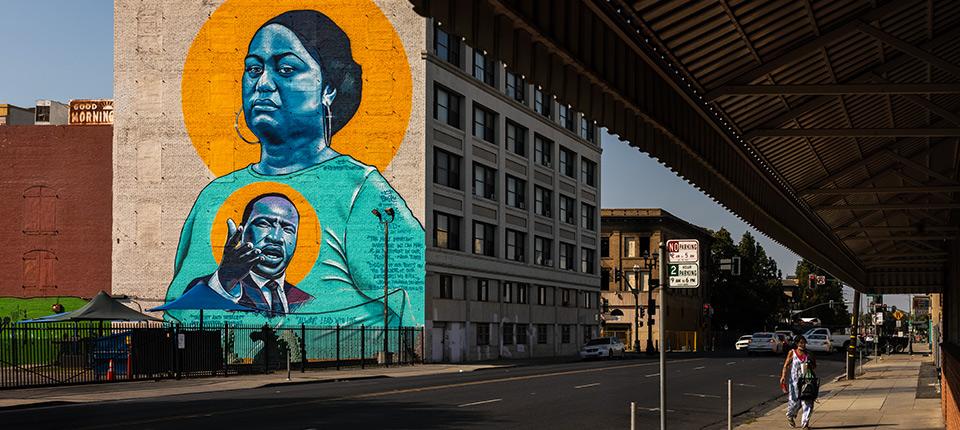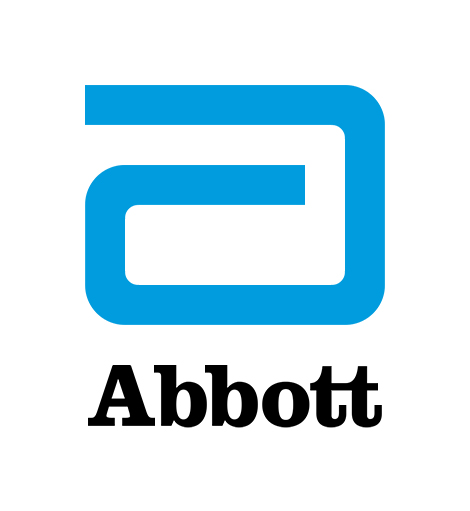Addressing Social Issues to Advance Health Equity
Future Well Communities tackles complex social barriers that complicate diabetes and prevent people from living healthy.

Across the U.S. and around the world, low-income communities and communities of color are facing health crises at alarming rates. Chronic diseases like heart disease and diabetes are responsible for more than 71% of deaths globally, and 88% of deaths in the U.S. As with other health challenges, the impact of these diseases disproportionately impact underserved communities, resulting in massive health disparities that are passed on to future generations.
We know this is not simply a medical problem to be solved. These disparities are driven by complex, interconnected social and economic issues like poverty, structural racism and access to healthcare, education and opportunity.
But how do we best tackle these issues to address chronic disease? And how can we advance health equity in the most meaningful, sustainable way?
In 2018, we asked ourselves these questions, and set out to take a community-based approach to find new answers to address the impact of chronic diseases like diabetes. Our goal was to partner with local community organizations to address the most pressing, everyday challenges that prevent people from living healthy — particularly in underserved communities that face significant health disparities.
And with this as a foundation, our Future Well Communities program was born in 2019.
We introduced Future Well Communities in Stockton, California, which was recently named the most diverse large city in America. Working with local government, leading institutions and community groups, we launched targeted initiatives to address the social determinants of health (SDOH). Think: lack of access to healthcare and education, less economic opportunity and discrimination – all elements directly linked to health inequities.
Through this initiative, we focused on removing barriers to good health in Stockton by providing access to the things people should have access to, but not everyone does — things like transportation to medical appointments, healthy foods, health education, and medical professionals who understand the complexities of managing diabetes and the unique challenges their patients face.
Then the COVID-19 pandemic shocked the world in early 2020. Along with the rest of the global health community, we had to quickly assess, listen, adapt and reset. It was clear that the most vulnerable communities would be hit the hardest and need greater support. So we provided targeted resources, food and frontline support to help address immediate needs.
At the same time, the availability of many in-person services were limited and became more challenging to provide. Health education classes and group health appointments went virtual. Gathering in community spaces was not an option.
Fortunately, we designed the Future Well Communities program to be flexible at its core. We set up a model that would allow us to implement a new approach to disease treatment and prevention, learn from our efforts, apply those learnings, and adapt and pivot as needed. All with an eye to supporting our 2030 Sustainability Plan focus on advancing health equity through partnership.
Zeroing in on Hardest-Hit Neighborhoods – and Focusing on Individual Needs
To further ensure we're being responsive to local needs, we refined the Future Well Communities program to deliver even greater impact in the years ahead.
First, we centered the program around prioritizing neighborhoods in Stockton that are facing the greatest challenges from diabetes and other diseases – including the downtown area, Southeast Stockton and the northwest. Within these underserved communities, we set a new goal: to improve the health of 10,000 people affected by diabetes by meeting their individual needs – linking them to multiple services and driving consistent usage.
A key part of this approach is to address multiple gaps by providing more than just one specific service. This is because we know that effectively attacking social challeges requires care that is all-encompassing. Every person faces different challenges. That's why we provide the customized, connected health and social services each person needs. We are bringing services to people, vs. the traditional model where people need to seek out the care they need.
We've also learned how important it is that services be provided by people who are a part of, and trusted by, the communities they serve – and that efforts need to be coordinated for maximum impact. So we're working together with new community-based partners, and putting a strong focus on collaboration across organizations and settings – making new connections to take a holistic approach in meeting people's individual needs.
Below is an overview of our partnerships across our three program pillars
1. Making Healthcare More Accessible
- With Community Medical Centers (CMC), we're providing "group medical visits" to people with diabetes for education and peer support in managing their condition.
- With El Concilio California, one of the largest community-based, nonprofit social service providers in the Central Valley, we're providing door-to-door transportation services, making it easier for more people to get to their medical appointments and access other services.
- To address the shortage of trained healthcare workers providing diabetes care in Stockton, we partnered with University of the Pacific to:
- Create four new educational programs: two diabetes certificates for clinicians and non-clinicians to help them better understand and manage diabetes; and a diabetes track within social work and nursing degree programs.
- Award scholarships to Stockton residents committed to working in Stockton after completing their education to ensure local workforce needs are met, with services provided by people from the communities they serve.
- Provide training placements for students in our Future Well Communities priority neighborhoods so they can gain first-hand experience, help provide vital services to their own communities, and build ongoing trust.
2. Reducing Barriers to Health Through Targeted Social Services
- With the Public Health Institute's Center for Wellness and Nutrition (PHI CWN), Community Medical Centers (CMC) and the Emergency Food Bank, we're piloting a Healthy Food Rx program to provide "food as medicine" to people living with diabetes. Food "prescriptions" are offered to people enrolled in the program through home-delivered healthy food twice a month for six months. Together with virtual cooking classes and nutrition education provided by PHI CWN and the Emergency Food Bank, these services help people eat healthier.
- With APSARA, a nonprofit providing services that promote economic independence, we're mobilizing a diverse, multi-lingual community health worker team that reflects the people they serve. Teams educate and deliver diabetes management tools, where residents are comfortable gathering. These efforts provide 1:1 community-based health and nutrition education in each of the priority neighborhoods, offering lifestyle coaching and case management to patients with diabetes – ensuring access to other health and social services as needed.
- We will work with multiple partners to conduct community awareness campaigns and health screenings to drive diabetes awareness and education across the priority Future Well Communities neighborhoods throughout the year.
3. Linking Services Together and Building Systems – For Maximum Impact
- With Dignity Health and others, we're working to establish an integrated system that will help to sustainably deliver community-based care for people with or at-risk for diabetes by addressing the social determinants of health. This coordinated care model elevates the role of community health workers (CHWs) to connect people with the specific health and social services they need in a standardized, outcomes-driven way. This work will help inform and is aligned with a broader CHW model in development in San Joaquin County, aimed at providing a centralized system to track services and tie payments to outcomes that improve the health of underserved communities.
- We are partnering with Unite US, an end-to-end solution technology company that builds coordinated care networks, to capture data on which healthcare and social services are being used and how often, while maintaining patient confidentiality. This will provide insights to allow healthcare providers to deliver better patient outcomes – and community workers to know which services are most effective.
- We're working with local partners to reinforce healthy lessons beyond the clinic and create local "health hubs" in neighborhoods. The sites, which may include community gardens, parks and health centers, are designed to encourage a sense of community and serve as welcoming areas where people can access the information and supporting services they need, such as food and health screenings.
We look forward to our continued work in Stockton — learning, iterating and adapting — to best serve the community in the ways that work best for them. We are committed to evolving the program and sharing the model with others to have an even greater impact in advancing health equity and transforming health for those who need it most.

